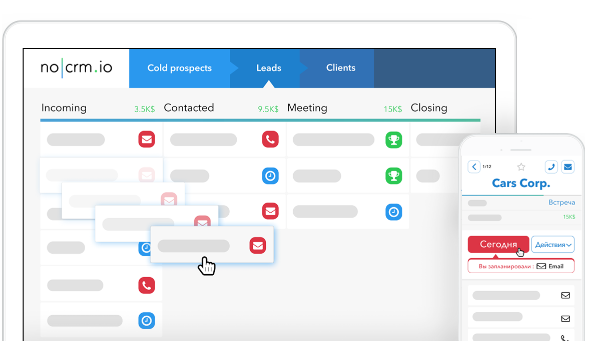
There are no two ways about it: real estate sales is a fiercely competitive world. With several multinational firms dominating the global market, dozens more boutique houses providing stiff competition in more niche areas, and a constant supply of representatives eager to test themselves, it’s harder than ever to stand out.
Although it can seem like a straightforward proposition in one sense—people will always need to buy houses, and they’ll always need somebody to buy them from—the sheer level of saturation means success is anything but easy to achieve.
That’s why it’s vital that you have a robust set of real estate tips to give you the best chance of achieving your goals as you try to sell real estate. Whether you’re a seasoned agent, brand-new to the industry, or anywhere in between, mastering the art of selling houses and prospecting properties requires insight, dedication, and high levels of adaptability given the constantly changing market conditions.
In the following guide, we’ll be diving deep into some practical real estate tips and strategies to help you enhance your sales approach, rethink your broader methodology, and ultimately close more deals.
A Broad Overview
Giving a thorough examination of the entire world of real estate sales would deserve an article in its own right. Comprising an intricate blend of marketing, negotiation, and customer service skills, the ideal real estate sales professional is a jack-of-all-trades, every bit as happy in the field with clients as they are comfortable in the office carrying out pre-deal research.
But from a high-level perspective, real estate sales actually look a lot like other sales disciplines.
At its core, it’s not about the properties themselves, nor is it about the tools you use to enhance your productivity and increase your outfit. Like any sales domain, the secret is building relationships, understanding client needs, and providing value that goes beyond the transaction itself.
Bearing that in mind, the best real estate tips need to focus as much on the human aspect of selling real estate as they do on the technical, industry-specific aspects of the work. After all, the only way to stand out from the competition and achieve sustainable, long-term success as a real estate sales professional is to master both elements of the process.
Understanding the Real Estate Market

Every successful real estate agent has a strong foundational understanding of the market they’re working in. It goes without saying that nobody can sell anything without knowing what they’re selling and who they’re selling to, but the world of real estate provides a unique set of challenges that aspiring professionals need to overcome in order to achieve their goals.
Staying informed about market trends, pricing dynamics, inventory levels, and even broader macroeconomic trends is the best way to provide accurate, valuable advice to your clients.
And when you provide value, you’ll find that the people you work with come back to you again and again. Word of mouth is a powerful tool when the product you’re selling is as significant as a house, which is the biggest purchase most of us will ever make.
If you can cement yourself as a trustworthy, well-informed source of objective truth in a notoriously temperamental market, you stand a great chance at building a long-term career in the space.
Analyzing Market Trends
No matter who you are or where you work, real estate market trends are important to all of us. It’s impossible to turn on the news without being confronted with an endless succession of stories and reports on prices, inflation, supply, demand—the list of possible topics is endless.
But one good real estate tip is to focus on the most relevant aspects of market trends, allowing you to cut out the extraneous noise and zero in on what’s important.
Factors like average sale prices, days on market, and supply and demand dynamics in your local area are the most pertinent details to keep abreast of. Knowing these figures and metrics off the top of your head won’t just position you as an expert and build trust with clients. It also helps you construct a narrative you can use to sell the house itself, since it gives an immediate sense of context backed up by cold, hard data.
Identifying Your Niche and Target Audience
There’s nothing more problematic than a generalist in sales. Nobody wants to work with an agent who sells everything from bungalows to commercial blocks. It doesn’t make you look like you’re versatile—it makes you look like somebody who hasn’t specialized in any one area, and that spells disaster when it comes to real estate.
Specializing in a particular niche is going to be your superpower as a budding realtor. Whether it’s first-time homebuyers, luxury homes, specific neighborhoods, or properties in a tightly defined range, niching down gives you the potential to become the go-to expert in that area for your clients. It also goes a long way towards facilitating your marketing efforts, by giving you a concise, easily digestible way to sell yourself.
Building Relationships

Relationships are at the heart of real estate. Only by developing strong connections with clients, other agents, and industry professionals will you be able to build the kind of robust network that supports a long, successful career.
We mentioned word of mouth above, but it’s worth re-emphasizing just how important it is from the client’s perspective. If somebody has a fantastic experience with a real estate agent, they’re incredibly likely to recommend that person to their friends, colleagues, or family members if the opportunity ever arises.
But that doesn’t mean you should only focus on building trust with your clients. Connections with other agents, even from competing firms, can lead to referrals and quid-pro-quo relationships that will continue to bear fruit throughout the extent of your whole career.
Networking and Building a Referral Base
So how do you actually go about networking as a realtor? There are no shortcuts when it comes to this particular real estate tip—the hard way is the only way.
Become an active presence in your local scene by attending events and volunteering your time and energy where possible to add value, even if there’s no immediate pay-off for you. Being an active member of real estate associations can open doors to further events and more connections, while online communities present a compelling opportunity to spread your roots even wider in today’s hyper-connected digital world.
The more hands you shake and friends you make, the better your chances at getting new opportunities and more referrals. Consider networking an integral part of your wider strategy and it’ll pay off handsomely in the long run.
Effective Communication and Follow-Up Strategies
Meaningful communication is the number one way to keep you at the forefront of your clients’ and prospects’ minds. That doesn’t have to mean constantly calling them, though (you definitely shouldn’t do that). Instead, you might want to consider exploring different digital avenues for keeping in touch and following up on the connections you’ve made.
Email newsletters, social media updates, LinkedIn messages, Facebook groups—the list goes on. The more channels you’re able to leverage, the better you’ll be able to keep on top of your communication needs with all your clients. The key here is consistency: don’t send one message and forget about the follow-up.
Digital tools are an excellent way to automate the process and make sure you never miss another check-in. noCRM, for example, is a lightweight, intuitive piece of CRM software that integrates with any other programs you’re already using and helps to stay focused, no matter how many prospects you’re juggling. Learn more about how noCRM could help you ramp up your sales efforts and achieve better outcomes by clicking here.
Marketing Properties Effectively
Marketing properties can and will set you apart from the competition. After all, listings are often the first and only way potential prospects ever hear about the product you’re selling. In a world where everything is online, there’s more opportunity than ever to stand out from the crowd, meaning that any effort you invest into your marketing strategies is time well spent.
High-quality visuals can make all the difference in terms of a first impression, while creative listing strategies tailored to your target audience give you a great chance at speaking directly to them and capturing their attention.
Don’t be afraid to get creative, either. Often, the bolder the strategy, the better the results, especially if your competition is more conservative with their approach.
Invest In Your Listings
Don’t make the mistake of cutting financial corners where your listings are concerned. Professional photographers and virtual staging experiences are expensive, sure—but they’re worth every penny.
Another area that real estate professionals, especially those newer to the space, often overlook is writing. Detailed, concise, and compelling descriptions can captivate a potential buyers’ interest like nothing else. Hiring a professional freelance copywriter to draft your descriptions will set your listings apart from the very first sentence, and could well be the difference-maker when it comes to scheduling viewings and closing deals.
Negotiate Like Your Life Depends On It
The best real estate sales professionals squeeze every drop of value out of each and every deal they close. In an industry where a huge percentage of your compensation comes from commission, every cent really does count.
When negotiating, take care to understand both your client’s needs and the seller’s proposition in as much detail as possible. This level of insight and knowledge will give you the killer edge you need to turn a bad deal into a good one, and a good deal into a great one.
Like so many things in life, negotiation is an art, and there’s no path to expertise that doesn’t include a huge amount of practice. So don’t be discouraged if your first few deals fall a little short. Focusing on constructive takeaways, learning from your mistakes, and keeping a positive mindset will make your next attempt that much more successful.
Don’t Be Afraid Of Paperwork
Nothing sends shivers down the spines of clients quite like bureaucracy. Closing is undoubtedly the most friction-heavy aspect of the real estate sales process, so any time you spend smoothing out how you’ll make your final push is well worth the effort you put into it.
The ideal closing process requires attention to detail and a thorough understanding of contracts, inspections, appraisals, and financing.
Transparency should be the guiding principle at every step along the way. The last thing anybody wants when they fork over the cash to buy a house is an unpleasant surprise at the final hurdle. A reputation as a trustworthy, well-informed realtor when it gets to the paperwork stage is one of the single biggest weapons you can have in your arsenal.
Continuing Education and Professional Development
Lastly, don’t skimp on your ongoing development as a professional. While not quite as technical a real estate sales tip as some of the others on the list, this one might be the most important of the lot. The world of real estate is constantly changing and evolving; if you don’t keep up, you run the very real risk of falling too far behind to be competitive.
Invest in your professional growth through courses, certifications, and by attending industry conferences. As your career progresses, consider becoming a mentor to newer agents. This won’t just help you grow your own reputation. It’s also a great way to remind yourself of the basics and ensure your fundamentals are as strong as they were when you first started out.
Achieving success in real estate sales requires a blend of market knowledge, relationship-building skills, effective marketing strategies, and negotiation expertise. We know: that sounds a little overwhelming. But when you break those categories down into a succession of real estate sales tips, you’ll discover none of it is actually unachievable.
As long as you remember that every interaction is an opportunity to learn, grow, and refine your strategy, you stand an excellent chance of achieving long-term success as a professional realtor.


